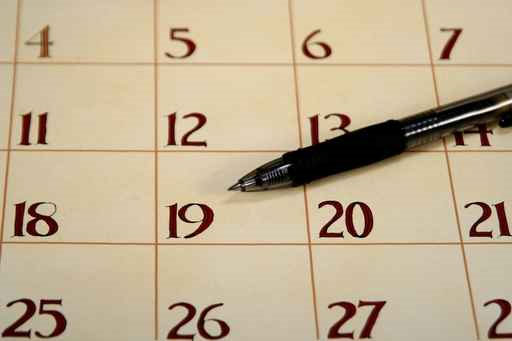If you are an organisation or an individual who organises/is keen on organising a blood donation drive, here are some things that are very important for you to know. Ensuring that you keep these suggestions in mind will ensure that the blood donation drive you organise is truly a well organised and effective opportunity the donors get to save precious human lives.
1. Avoid National and Regional Festivals
 Ask any Blood Bank Officer and they will tell you that it is not a great idea to organise blood donation drives on Festivals. On Independence Day, Republic Day, Gandhi Jayanti, State Formation Days and World Blood Donor Days all blood banks face an ironic situation. They have huge number of requests for blood donation drives and inevitably they have to refuse many of the camps, even as they are still prone to massive shortage. Not everyone who needs blood comes for treatment around National Festivals. The shelf life of blood is limited to 25-35 days. It is less than 6 days for platelets. But since many organisers decide upon organising the blood donation drives on these days and these days alone - the supply of blood does not match the requirement.
Ask any Blood Bank Officer and they will tell you that it is not a great idea to organise blood donation drives on Festivals. On Independence Day, Republic Day, Gandhi Jayanti, State Formation Days and World Blood Donor Days all blood banks face an ironic situation. They have huge number of requests for blood donation drives and inevitably they have to refuse many of the camps, even as they are still prone to massive shortage. Not everyone who needs blood comes for treatment around National Festivals. The shelf life of blood is limited to 25-35 days. It is less than 6 days for platelets. But since many organisers decide upon organising the blood donation drives on these days and these days alone - the supply of blood does not match the requirement.
A more pragmatic and effective approach to choose a time to organise a blood donation drive sis to discuss with the blood bank and identify the periods of maximum shortage. If the blood drives is organised at a time of shortage, each unit collected has maximum relief for the patients struggling to survive.
Another thing to be kept in mind when you are organising a drive is to ensure that you don't choose a day when many people in the place where the drive is being organised may be fasting. Paying a little attention to ensure that there is no festival where people keep fasts will ensure that you don't get unduly poor response.
2. Avoid Intrusive Inauguration and Felicitation events
Many times organisers call upon VIPs and people of civic importance to inaugurate the blood donation drives. While the event itself may provide the much needed encouragement to the organisers and the donors, one thing to be taken care of is that such events must strictly conclude before the start of the drive or start after the finish of the drive. Sometimes, because of the delays in the arrival of the guests, the organisers tend to organise these ceremonies at their will. They do not realise than once the donation process has started the complete attention of the blood bank officer and staff should be on the donors. When the event of this nature kicks in after the start of the drive, sometimes the blood ban officers oblige the organisers by taking their seat at the stage while putting on back foot the need to monitor and pay careful attention to the donors. Besides, many donors who are only interested in donating blood are made to wait un-necessarily.
We recommend the organisers to keep the ceremony simple and warm right at the beginning. The biggest encouragement and motivation is when senior members themselves come and donate blood.
3. Say NO! to Benefits
 There are plenty of organisers of blood donation drives who demand the blood banks in black and white for special favours and benefits because they are organising the drive. The question asked is - "What do we get?". Over a period of time some blood banks have adopted the practice of accepting this undue request and obliging. Some deeper thinking on this part is necessary.
There are plenty of organisers of blood donation drives who demand the blood banks in black and white for special favours and benefits because they are organising the drive. The question asked is - "What do we get?". Over a period of time some blood banks have adopted the practice of accepting this undue request and obliging. Some deeper thinking on this part is necessary.
The very fact that the event is a voluntary blood donation drive implies that the actions of the organisers and the donors are voluntary - guided by philanthropy and sense of responsibility and affection towards fellowmen. It is not a business exchange of some sort. It is definitely not to be equated with an insurance drive! Unfortunately the exchanges that have started happening between some blood bank and some organisers are grossly disrespectful towards the spirit of the voluntary blood donors and the voluntary blood donation itself.
When a person donates blood, the expectation is to see to it that whomsoever is in need of blood should be given the unit without any bias or reservation at the lowest possible cost. If a blood bank truly puts this in action then the blood bank will always issue blood to the person in greatest need without hiding any stock or keeping any reservation. Such a blood bank can never promise any favour to the organisers beyond what they are offering to the needy.
The other aspect that comes into picture is the cost. Each donor wants the blood bank to give blood to the needy at the lowest possible cost. If a blood bank ensures that it is not making huge profit then they will have very meagre resources to be spared to appease the organisers with any materialistic benefits.
If we really respect the intent and the spirit of voluntary blood donation then all that we must ask the blood bank for in return of the blood that is given to them is an assurance of proper testing, processing, storage and most importantly issue of blood. A blood bank which is involved in offering personal favours of any kind to the organisers had definitely crossed the fine line of expectation which the individual voluntary donors have from them. The onus falls upon the organisers to create an atmosphere where the blood banks feel compelled to offer quality and service - and these alone - to present themselves as eligible candidates for blood donation drives.
4. Organise Volunteers
 Find some people who are highly dedicated to helping organise the event. Ensure that these people are not disturbed by the presence of some who are keener on presenting themselves as philanthropists rather than working for the event. The presence of some dedicated people who are interested in ensuring the best possible result for the blood donation drive is greatly instrumental in ensuring a better event as a whole. The volunteer team helps in ensuring that the organiser can deliver upon each of the items listed in this article effectively.
Find some people who are highly dedicated to helping organise the event. Ensure that these people are not disturbed by the presence of some who are keener on presenting themselves as philanthropists rather than working for the event. The presence of some dedicated people who are interested in ensuring the best possible result for the blood donation drive is greatly instrumental in ensuring a better event as a whole. The volunteer team helps in ensuring that the organiser can deliver upon each of the items listed in this article effectively.
5. Share Responsibility of Donor Safety
 Even as promotion of voluntary blood donation is a very important thing, probably one thing which takes precedence over this is the safety and well being or both the donor and the needy. Managing safety in a blood donation drive could be a very simple task if the protocol that is set for voluntary blood donation is followed religiously. The blood banks often provide pre and post donation care instructions. Many times the donors do not look at these things very carefully and undermine their importance. For example, many people do not pay much importance to filling up the form accurately, paying attention to the time of their last mean, questions related to personal well being etc. Organisers ca play a pivotal role in ensuring that good pre-donation and post donation care is taken for each and every single donor. This will ensure that the donors are suitably selected (thus ensuring safe blood for the patient) and at the same time ensure that the donor has a great experience donating blood.
Even as promotion of voluntary blood donation is a very important thing, probably one thing which takes precedence over this is the safety and well being or both the donor and the needy. Managing safety in a blood donation drive could be a very simple task if the protocol that is set for voluntary blood donation is followed religiously. The blood banks often provide pre and post donation care instructions. Many times the donors do not look at these things very carefully and undermine their importance. For example, many people do not pay much importance to filling up the form accurately, paying attention to the time of their last mean, questions related to personal well being etc. Organisers ca play a pivotal role in ensuring that good pre-donation and post donation care is taken for each and every single donor. This will ensure that the donors are suitably selected (thus ensuring safe blood for the patient) and at the same time ensure that the donor has a great experience donating blood.
Scenario: "A donor faints after donating blood. After recovering the doctor quizzed the donor only to realise that the donor had not had anything substatioal to eat in the last 4 hours before donation blood. A simple question asked at the right time could have prevented this fainting which inevitably leads to several other people getting discouraged and develop misconceptions about blood donation."
6. Avoid Pushing For Numbers
Most blood drive organisers are highly keen on getting large number of donations done. In order to achieve this goal, sometimes the organisers start trivialising the eligibility criteria, skipping steps in the donation process and forcing some people to donate blood. Some blood banks who are only focussed about their stock take this as an opportunity to do frivolous screening and focus on collection of more units. This greatly endangers the donor's and patient's safety. The goal of the organisers should be to ensure that maximum people come to donate blood - by means of powerful publicity campaign. At the same time they should be happy about aggressive screening of donors for eligibility to donate. As many willing donors as possible but only those who are truly eligible getting an opportunity to donate blood is the mantra.
7. Keep the Donation Area free from Crowding
 Avoid crowing at the place where people are donating blood. Ensure that apart from donors only the blood bank staff and few selected volunteers are present there. This ensures that the medical officer can keep a watchful eye on all donors and attend to an emergency immediately. Crowding around the beds could also cause restlessness and suffocation for the donor.
Avoid crowing at the place where people are donating blood. Ensure that apart from donors only the blood bank staff and few selected volunteers are present there. This ensures that the medical officer can keep a watchful eye on all donors and attend to an emergency immediately. Crowding around the beds could also cause restlessness and suffocation for the donor.
8. Choose a Good Venue
Choose a venue which is well lit, well ventilated and covered on at least 3 sides and top. Ensure that the venue is properly mopped and cleaned before the drive.
9. Recognize Donors
Ensure that each donor is appreciated warmly for their gesture of coming forward to save a life. Also acknowledge those who came forward but unfortunately were found not eligible to donate blood.
A seperate article will follow which will indicate what needs to be done to select the most appropriate blood bank to benefit from your blood drives.

Having read this complete article on organising blood donation drives it is time for you to make up your mind to come forward and organise a blood donation drive. Rakta Kranti team will happily co-ordinate with you to rope in publicity materials and create a good awareness among you're blood donors and also rope in a good and safe blood bank from your locality. Call us at 9880132850 or drop a mail to sankalp.admin@gmail.com with a subject line saying Request To Organise a Blood Donation Drive and we should be ready to help you get started!. Your zeal, effort and enthusiasm will help some unknown patient somewhere.
Come let us join together To Give Life Another Chance